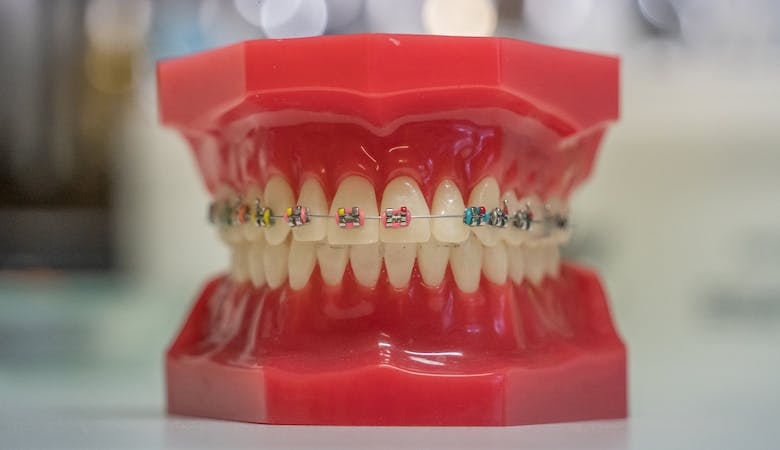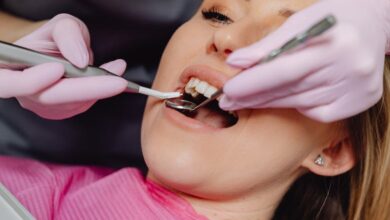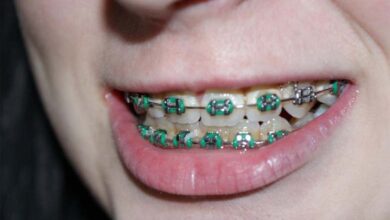Twenties Teeth: Eight tips for oral health in your 20s

Oral health is a critical aspect of overall well-being, especially in your 20s, a time when lifelong habits are formed. Good oral hygiene is not only essential for a beautiful smile but also for preventing long-term health issues. In places like Wake Forest, where there are plenty of restaurants with Southern comfort food and more, along with coffee shops and people who love hanging out, maintaining oral health can be challenging due to dietary habits and lifestyle choices. Regular dental care, including visits to an orthodontist when necessary, plays a key role in ensuring oral health during this crucial time in your life.
Regular Checkups
Regular dental checkups are the cornerstone of maintaining good oral health. In your 20s, when you’re likely to be exploring life, sometimes your oral health can take a back seat. However, visiting an orthodontist regularly, ideally every six months, can help in the early detection of issues such as cavities, gum disease, and even oral cancer. These visits are not just about problem-solving; they’re also about preventive care. An orthodontist professional can offer personalized advice on oral hygiene practices based on your lifestyle and dental health status while also suggesting some correcting techniques such as Invisalign or Braces.
Straighter Teeth are Healthier Teeth
Straighter teeth are not only aesthetically pleasing, but they are also healthier. If you’re a citizen of Wake Forest, consider booking a consultation with an experienced Wake Forest orthodontist for the best Invisalign or braces treatment. Straight teeth are easier to clean, reducing the risk of cavities and gum disease. Misaligned teeth can create hard-to-reach areas where plaque accumulates, leading to dental issues. Modern orthodontic treatments like Invisalign offer a less visible and more comfortable alternative to traditional braces, making them a popular choice for young adults who are conscious about their appearance.
Daily Flossing is Key
While brushing is a well-known part of oral hygiene, flossing often gets overlooked. Yet, it is essential for removing plaque and food particles from between the teeth, where a toothbrush cannot reach. This practice is crucial in preventing gum disease and cavities. It’s important to floss at least once a day, using a gentle sawing motion to avoid harming the gum line. Regular flossing not only keeps your teeth healthy but also contributes to fresher breath.
The Right Toothbrush Matters
Using the right toothbrush can make a significant difference in your oral care routine. Soft-bristled toothbrushes are recommended, as they are gentle on the gums and effective in removing plaque. Moreover, you need to know whether you’re using the proper brushing technique– use circular motions and avoid aggressive scrubbing to protect your enamel and gums. Also, please don’t forget to replace your toothbrush every three to four months. An old or worn-out toothbrush won’t clean your teeth effectively and could harm your gums.
Limit Sugary and Acidic Foods
A diet high in sugary and acidic foods is one of the biggest enemies of good oral health (unfortunate but true). Sugars feed the harmful bacteria in your mouth, leading to the production of acids that erode tooth enamel and cause cavities. Acidic foods and drinks, like certain fruit juices and carbonated beverages, can also wear down enamel over time. In your 20s, when you might be more inclined to indulge in such dietary choices, it’s crucial to practice moderation. Opt for healthier alternatives like fruits, vegetables, and water. Yes, junk food and drinks are tempting, but it isn’t really worth losing your teeth earlier than you should.
Don’t Neglect Your Tongue
Don’t leave out the tongue! Your tongue can harbor bacteria that lead to oral health issues and bad breath. Cleaning your tongue should be a part of your daily oral hygiene routine. You can use a tongue scraper or the bristles of your toothbrush to gently clean the surface of your tongue. This not only helps in removing bacteria but also enhances your sense of taste and contributes to fresher breath. It’s a simple step but one that has a significant impact on maintaining oral hygiene.
Stay Hydrated for Oral Health
Didn’t see this one coming, did you? Water helps in washing away food particles and dilutes the acids produced by bacteria in your mouth. It also promotes saliva production, which is vital for neutralizing acids, aiding digestion, and preventing dry mouth—a condition that can increase the risk of tooth decay. Make a habit of carrying a water bottle with you, especially in your active 20s, to ensure you’re drinking enough throughout the day.
Quit Smoking and Reduce Alcohol Consumption
Smoking and excessive alcohol consumption can have severe repercussions on your oral health. Smoking not only stains your teeth but also increases your risk of gum disease and oral cancer. Alcohol, especially when consumed in excess, can lead to dehydration and dry mouth, reducing saliva production and increasing the risk of cavities and gum disease. If you smoke or drink alcohol, consider cutting back or quitting altogether to protect your oral health.
Conclusion: Healthy smiles all the way!
Embracing these oral health practices in your 20s can have a long-lasting impact on your dental health and overall well-being. Regular checkups ensure that any issues are caught and treated early. Opting for orthodontic treatments like Invisalign can not only enhance your smile but also improve oral hygiene. Daily flossing and using the right toothbrush are simple yet effective practices that keep your teeth and gums healthy. Avoid sugary foods, and we highly recommend quitting smoking and drinking altogether.
These practices are not just about keeping your smile bright; they’re about preserving your overall health and well-being. Whether you’re in Wake Forest or elsewhere, taking proactive steps to care for your teeth and gums will pay dividends in the form of a healthy, confident smile well into the future.




